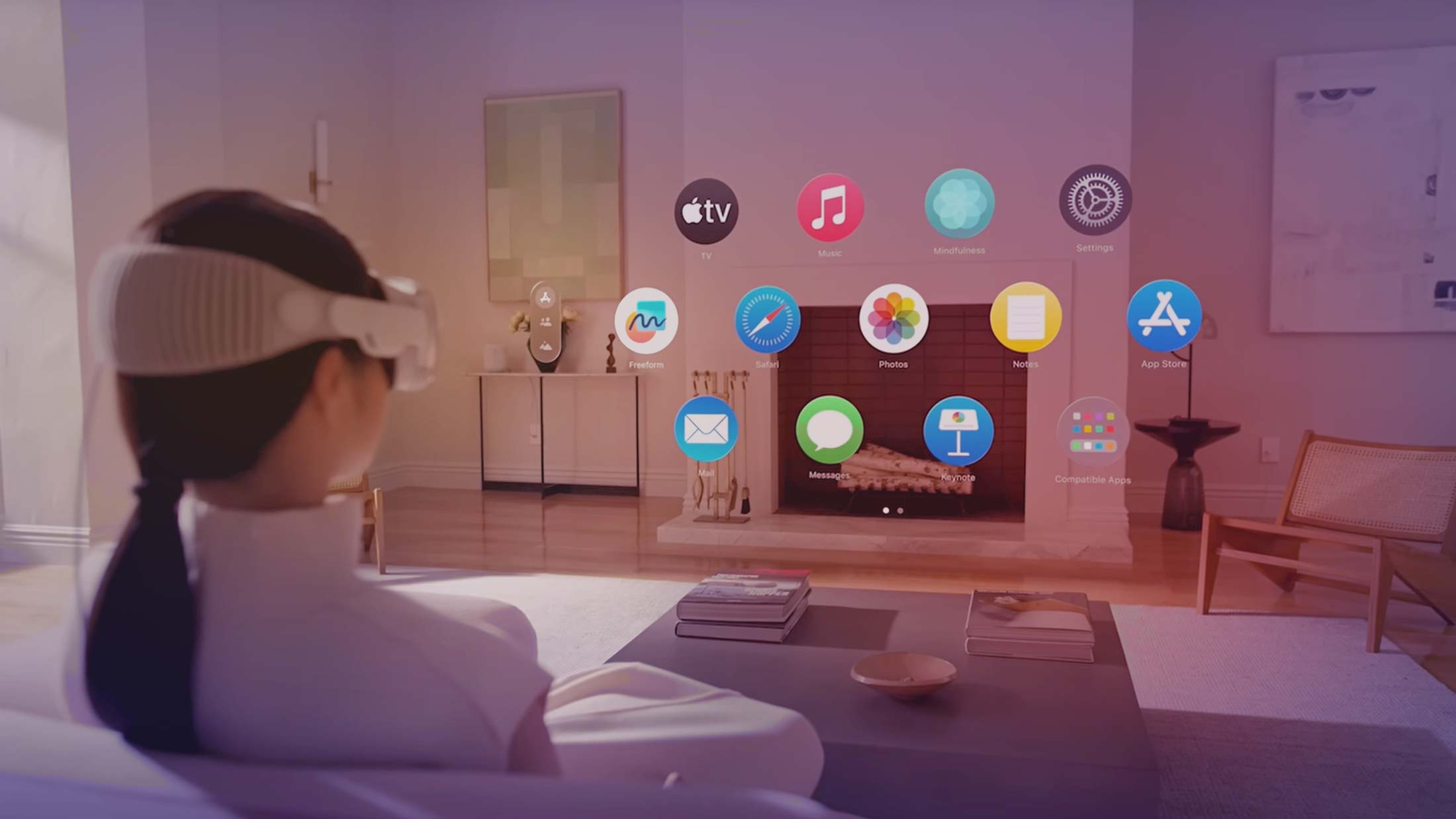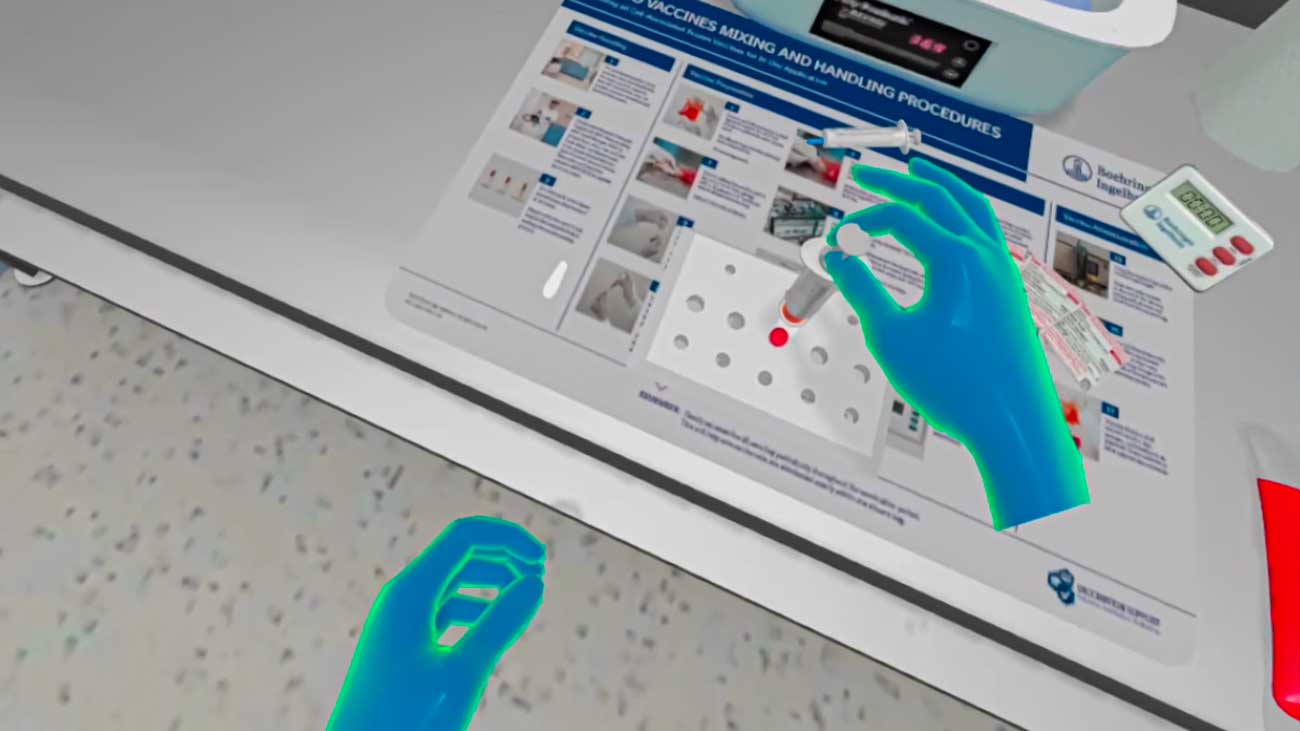Business Innovation: Spatial Computing Applications in Extended Reality
Business Innovation: Spatial Computing Applications in Extended Reality
The ability to innovate effectively makes the difference between success and stagnation in the business world. Particularly nowadays, where the technological advances and the market trends are changing at an ever-increasing rate.
Companies that adopt a mentality open to changeare flexible and willing to evolve their business model, they are more likely to excel - and survive - in disruptive business environments.
The business innovation is undoubtedly the main line of action for companies today. Therefore, in today's article we will not only review what it is and what are its main types. We will also analyze the main technological trends that most affect business innovation, highlighting the new era of Spatial Computing.
What is business innovation?
Before delving into its typologies, examples and main trends, it is important to reflect on its own definition.
Business innovation refers to the process by which organizations introduce new products and services ideas, products, services or procedures in order to improve their corporate processes.The company's growth is based on a long-term strategic vision of growth that has its impacts in the short term. All through a strategic vision of long-term growth that has its impacts in the short term: increasing productivity, incorporating a new technological tool, improving customer experience...
Business innovations can be of external naturesuch as the launch or improvement of a product or service; or internalThe company's operations management is optimized.
However, in order to properly carry out innovation within a company, several factors must be taken into account. The culture of the organization itself, its investment in r&dIn general, the way in which the company manages all these aspects has an impact on its capacity for innovation.
4 types of business innovation
Business innovation covers a wide range of typologies and objectives. It is the responsibility of each company to analyze all types of innovation and to carry out a strategic improvement plan in each of these areas.
Below, we explain the 4 main types of business innovation.
Product and service innovation
Product and service innovation is one of the most common strategies in companies. It consists of introducing a redesigned or improved product/service to the market, which is adapt to the changing needs of the customers and that take into account all stakeholder demands.
Changes can be applied to packaging, customer service, components... all to provide the best possible service to our customers. quality y customer experience. That attracts new audiences and differentiates you from competitors.
A current example of these innovations can be found in the incorporation of the avatars with AI engine customer service, including in restaurants, such as in the case of Smoky for the Nola Smoke hamburger restaurant.
Structural innovation
A constantly changing business environment requires companies to implement a strategy of innovation of its organizational structures.
Creativity, flexibility, competitiveness and agility are key aspects for the management of companies today. Innovations that must arise from the talent, culture and assets of the company, which lay the foundations for implementing the other types of business innovation.
Process innovation
Process innovation is based on rethinking the steps of the process. value chain of a company. An overhaul that can lead to a total restructuring of the production area. This process innovation can be carried out through the implementation of specialized management software, a new form of employee training or even a total management of all areas of the company through a virtual twin of the company.
An example of this type of innovation can be found at La Torre Outletthe most digitized shopping center in Spain, which has integrated in the same webapp all parameters, both internal and external, for its correct operation.
Business model innovation
Undoubtedly, this type of innovation is one of the most important to take into account. The business model innovation refers to the analysis, review and adaptation in the way businesses operate and provide services to their customers.
All of this in a constant manner and always with a focus on the creativity, differentiation y value creation for customers. Which are constantly evolving.

Business Innovation: Spatial Computing
In the business world, technological innovation plays a key role in the evolution of companies.
Without the digital transformation and technological integrationIn order to be competitive, companies cannot remain in the present or evolve towards the future of the business. It is therefore essential to be aware of the latest technological advances, know them and above all, know how to integrate them into the company to remain competitive and disruptors in their own market.
Among the latest technological innovations that are being incorporated into the business world we find the Spatial Computing.
This technology refers to advanced data processing that merges both the physical and virtual worlds, making the exchange of information and interaction between technological devices much more natural and humanized. For companies, this is a major step forward in the optimize different areas of the value chain.
From production management and training of workers in the production process, to the Industry 4.0The company's marketing area, developing immersive experiences in which users can immerse themselves in the essence and branding of the company.
Or even in the offices themselves, where, thanks to the immersion provided by the VR/MR glasses With Spatial Computing systems, professionals can work with a new personal computer in glasses format. Allowing complete isolation even in an office with dozens of people.
If you would like to learn more about this technology, please visit What is Spatial Computing and its importance today?.
Applications of Spatial Computing in Business Innovation
This more humanized interaction with machines and computers represent a paradigm shift for companies in the way they adapt and integrate technology into their work methodology and business model.
Spatial Computing in business innovation can reach a wide range of applications. increase productivity, save costs and boost learningespecially in highly specialized areas or areas that require tacit training that is slower to acquire.
In this section we present some of the applications The most important aspects of spatial computing for companies.
Remote collaboration
Undoubtedly, one of the advantages offered by glasses with Spatial Computing systems is to be able to have the following advantages real time information superimposed on the goggle itselfThe technology can be used to free the hands and interact with the technology by voice.
A fact that helps to perform control and management in large factories and warehouses, obtaining all the necessary data at a glance - thanks to its computer vision system. In addition, this connection also makes it possible to take a further step forward in the remote collaboration. Making it easier to interact and communicate with other professionals and even with Artificial Intelligence assistance systems.
Training and simulation
Spatial Computing together with Virtual Reality and Augmented Reality makes companies incorporate new professional training systems through the use of the learning by doing (learning by doing) for the optimization of training time in their companies.
Studies show that students learn a subject four times faster if the subject has a training block with immersive 3D simulations. Where trial-and-error is encouraged, trial-and-error, the gamification and autonomy in learning.
Formations such as the Virtual Trainings developed for industrial companies such as Global Spedition in their safety or pharmaceutical training as Boehringer Ingelheim for training in the preparation of its latest vaccine.
3. Design of virtual prototypes
Thanks to its latest advances in computer vision and spatial mapping, Spatial Computing goes one step further in what we know today as Mixed Reality. Allowing companies to innovate in the design and prototyping of their products through virtual 3D models superimposed on reality.
This makes it easier to see the model in detail, to collaborate with the whole team and, most importantly, to make modifications in real time and by voice. A fact that is possible thanks to the integration of the Machine Learning and the Artificial Intelligence within the ecosystem of space computing technologies.
Business innovation with Imascono
The business world is currently immersed in a process of evolution and change. Companies are experiencing the beginning not only of digitalization, but also of the virtualization of our business models. This is why we must be aware of the importance of the innovationof the technology integration and to build a corporate culture open to change.
At Imascono for more than 12 years we have been the strategic partner of major national and international companies in their digital metamorphosis. Companies from different sectors whose business model and vision require constant innovation and evolution.
We have a team of engineers and designers who are experts in Extended Reality technologies and Artificial Intelligence and its adaptation to the business world. Contact with us and find out how we can help you to boost your business innovation strategy.


